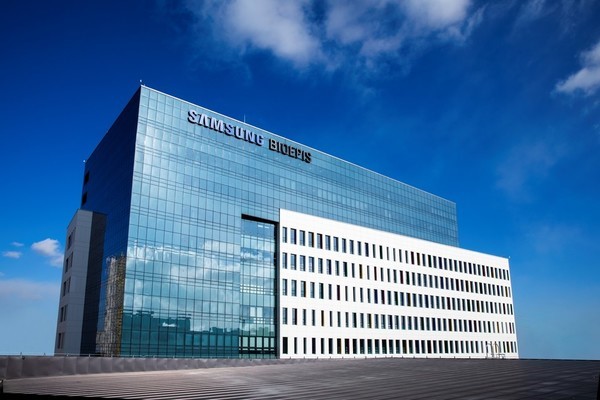Samsung Bioepis said Tuesday that it would present three scientific abstracts for its ophthalmology biosimilars at the American Academy of Ophthalmology (AAO) 2022 from Sept. 30 to Oct. 3 in the U.S.
The company conducted phase 3 studies to compare the efficacy, safety, immunogenicity, and pharmacokinetics (PK) of Samsung Bioepis’ biosimilar drug SB15 to reference drug, aflibercept (brand name: Eylea), in neovascular age-related macular degeneration (nAMD).
This disease impacts the central area of the retina in the eye, called the macula. In nAMD, new and abnormal blood vessels grow uncontrollably under the macula, causing swelling, bleeding and/or fibrosis.
According to Samsung Bioepis, the best corrected visual acuity (BCVA) at week 8, and the 32-week interim analysis demonstrated comparability in other secondary efficacy endpoints, safety, immunogenicity, and PK between SB15 and reference aflibercept.

Additionally, a post-hoc analysis of the phase 3 study on SB11 (reference drug: ranibizumab), analyzed the association of immunogenicity with one-year results of SB11 for treating nAMD.
Results revealed low immunogenicity response with no significant difference between SB11 and reference ranibizumab. A Samsung Bioepis official also explained that the immunogenicity appeared to not have any association with clinical outcomes in the study.
Furthermore, results of the phase 3 study on SB11 determined baseline factors associated with one-year efficacy outcomes in nAMD.
Consequently, the study found that baseline age, BCVA, and central subfield thickness were found to be predictive of visual acuity and anatomical outcomes when treating nAMD with either SB11 or reference ranibizumab.
Similar results from previous clinical trials in nAMD, support the biosimilar’s equivalent clinical efficacy between the products.
“We are delighted to share phase 3 data on SB15 for the first time,” said Jung Jin-ah, director and medical affairs group leader at Samsung Bioepis. “It was also important to address the immunogenicity profile of SB11, because it is an important risk factor which can potentially affect clinical outcomes of treatment.”
Jung added that Bioepis will strive to help ophthalmologists have a better understanding of biosimilars, and their comparable efficacy, safety, immunogenicity, and PK profile to reference products through its continued efforts for data generation.

